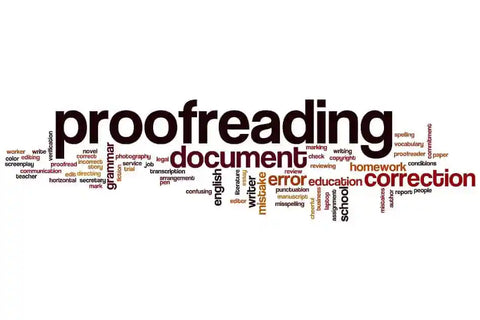Translating Sources and Making the Most of Your Proofreader
The authors of academic and scientific documents written in the English language often need to quote passages of text from sources originally written in other languages. In some cases, the author can assume an audience that will be proficient enough in the language or languages of those sources to understand the quotations in the original without assistance. If you are quoting ancient Latin and Greek texts for readers who are classical scholars, for instance, you probably do not need to worry about your readers’ comprehension. In many cases, however, those passages of foreign languages will require translation if you want all of your expected readers to understand them thoroughly, and it is usually a good idea to eliminate any concerns about your readers’ linguistic abilities by providing a careful translation of any text written in languages other than the primary language of your document.
If you are among those authors who possess fluency in many languages, translations of this kind will probably present very little challenge and you will find yourself readily able to communicate successfully with your audience. However, if this is not the case and you tend to struggle when translating what are often complex passages of scholarship or literature into clear and accurate English, some help may be necessary. Certainly you can solicit assistance from colleagues and mentors, and hiring a translator is a good option if you have numerous passages to translate, but an academic or scientific proofreader can also prove extremely helpful. Engaging the services of a professional proofreader or editor to check and polish your written work is always a good idea in any case, and if you experience difficulty when writing in the English language, such services are very likely a necessity, so requesting a little additional assistance with passages you have translated is a wise option.
If your proofreader specialises in your discipline and subject area, he or she may have a working knowledge of the language(s) you are translating and be able to provide a great deal of helpful feedback, though in that case a slightly higher rate might be charged. However, even if your proofreader does not understand the language from which you are translating, he or she can help you get your translations right by alerting you to any potential problems, such as vocabulary that seems inaccurate or inappropriate for the context or phrasing that is simply odd or awkward. Remember that it is essential to let your proofreader know that the translations are your own if you want the passages to be treated as potentially alterable; without such information, academic and scientific proofreaders will respect the wording of direct quotations and likely point out only glaring errors so that they can be checked for accuracy against the original.
If you are following the sound scholarly practice of informing your readers whenever you are providing your own translations of quotations, your proofreader will be aware that you are translating quotations yourself, but it never hurts to make this fact explicit and ask that your translations be proofread with an eye to suggesting more effective or eloquent wording whenever possible or necessary. This can be done by providing instructions when you send your work to your proofreader or editor, by including in your document marginal comments explaining the situation or by changing the colour of any text you would like your proofreader to treat in this way. Ideally, a combination of the above would be used so that it is absolutely clear to your proofreader exactly which chunks of text are your own translations and how she or he should approach them to provide you with the best possible service.
Why Our Editing and Proofreading Services?
At Proof-Reading-Service.com we offer the highest quality journal article editing, dissertation proofreading and online proofreading services via our large and extremely dedicated team of academic and scientific professionals. All of our proofreaders are native speakers of English who have earned their own postgraduate degrees, and their areas of specialisation cover such a wide range of disciplines that we are able to help our international clientele with research editing to improve and perfect all kinds of academic manuscripts for successful publication. Many of the carefully trained members of our manuscript editing and proofreading team work predominantly on articles intended for publication in scholarly journals, applying painstaking journal editing standards to ensure that the references and formatting used in each paper are in conformity with the journal’s instructions for authors and to correct any grammar, spelling, punctuation or simple typing errors. In this way, we enable our clients to report their research in the clear and accurate ways required to impress acquisitions proofreaders and achieve publication.
Our scientific proofreading services for the authors of a wide variety of scientific journal papers are especially popular, but we also offer manuscript proofreading services and have the experience and expertise to proofread and edit manuscripts in all scholarly disciplines, as well as beyond them. We have team members who specialise in medical proofreading services, and some of our experts dedicate their time exclusively to dissertation proofreading and manuscript proofreading, offering academics the opportunity to improve their use of formatting and language through the most exacting PhD thesis editing and journal article proofreading practices. Whether you are preparing a conference paper for presentation, polishing a progress report to share with colleagues, or facing the daunting task of editing and perfecting any kind of scholarly document for publication, a qualified member of our professional team can provide invaluable assistance and give you greater confidence in your written work.
If you are in the process of preparing an article for an academic or scientific journal, or planning one for the near future, you may well be interested in a new book, Guide to Journal Publication, which is available on our Tips and Advice on Publishing Research in Journals website.








